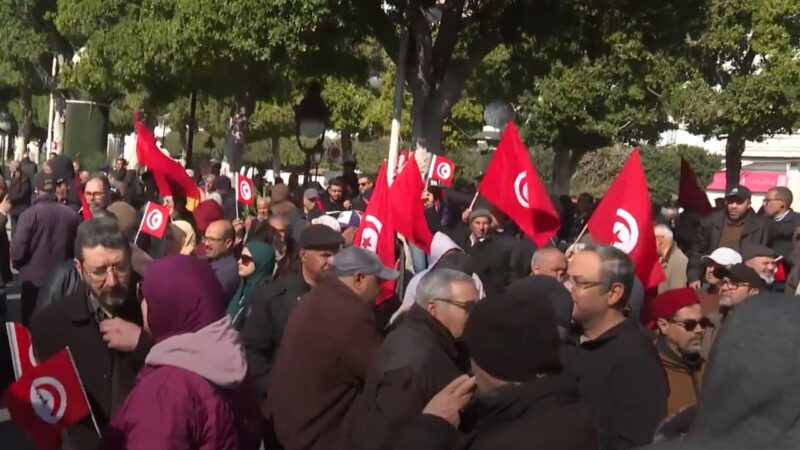Several hundred Tunisians marched through Tunis, chanting “down with the dictatorship,” protesting recent arrests under a presidential decree critics claim stifles dissent.
Tunisia, known for its open media since the 2011 revolution, faces growing restrictions under President Kais Saied, elected in 2019.
Recently, two media figures were sentenced to one year in jail for comments deemed critical, under Saied’s 2022 Decree 54 banning “spreading false news.”
Protesters shouted “down with the decree” and “Dictator Kais, it’s your turn now,” referencing the 2011 Arab Spring that ousted Zine El Abidine Ben Ali.
Two years after his election, Saied dissolved the parliament, took judicial control, and ruled by decree, actions the opposition calls a coup.
Many critics have since been jailed or prosecuted.

This week, broadcaster Borhen Bsaies and commentator Mourad Zeghidi received one-year sentences for spreading “false news” and defaming others. Both defended their comments as journalistic work, while Zeghidi’s lawyer called Decree 54 “unconstitutional.”
Since Decree 54, six journalists, including Bsaies and Zeghidi, have been imprisoned.
Over 60 journalists, lawyers, and opposition figures have been prosecuted. In May, police arrested 10 people, including journalists and civil society members, in what Amnesty International called a “deep crackdown.”
International bodies, including the UN, EU, US, and France, have criticized the arrests and urged Tunisia to respect free speech and civil liberties.
Saied dismissed the criticism as foreign interference and defended his actions as necessary to end chaos and corruption.

